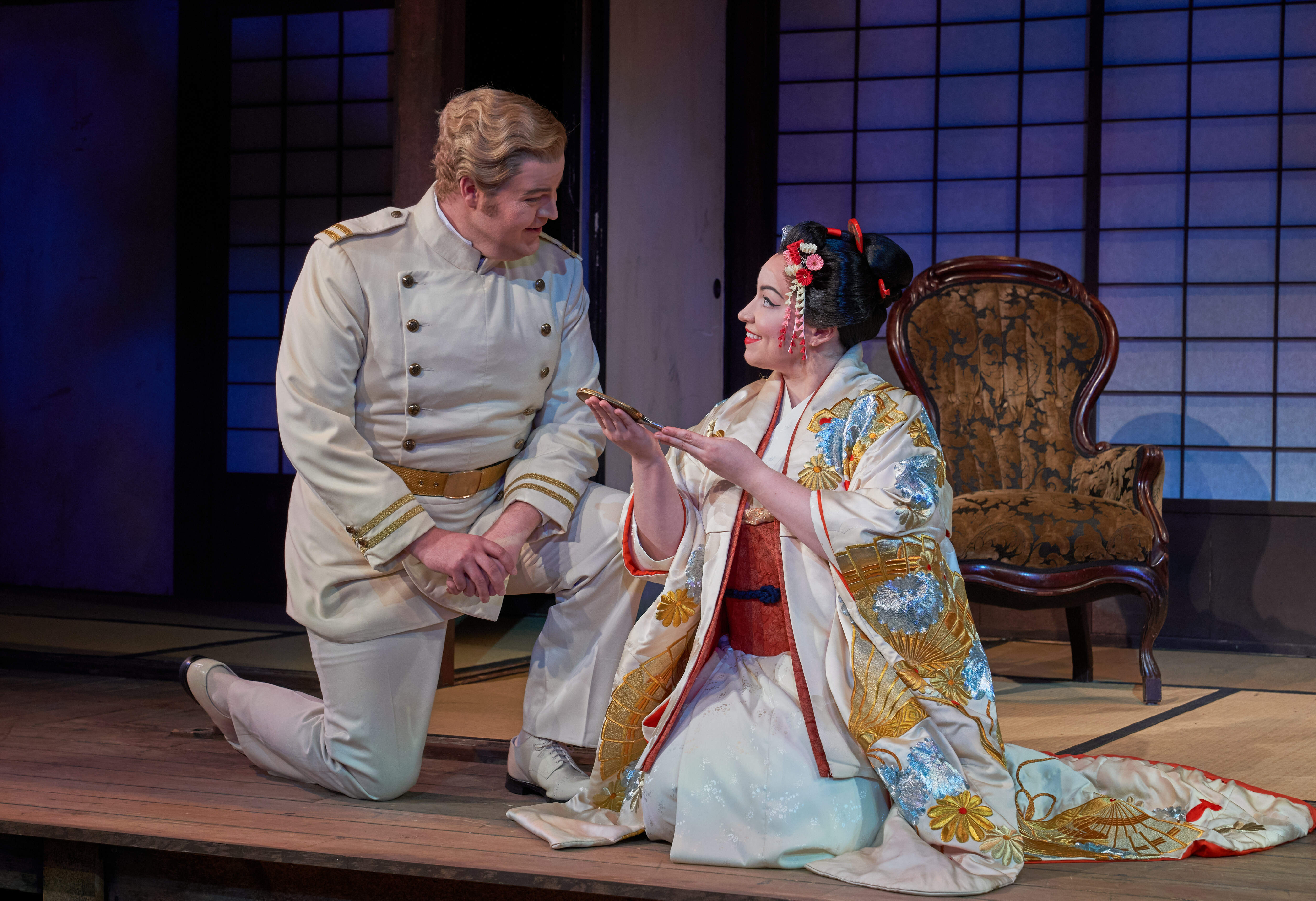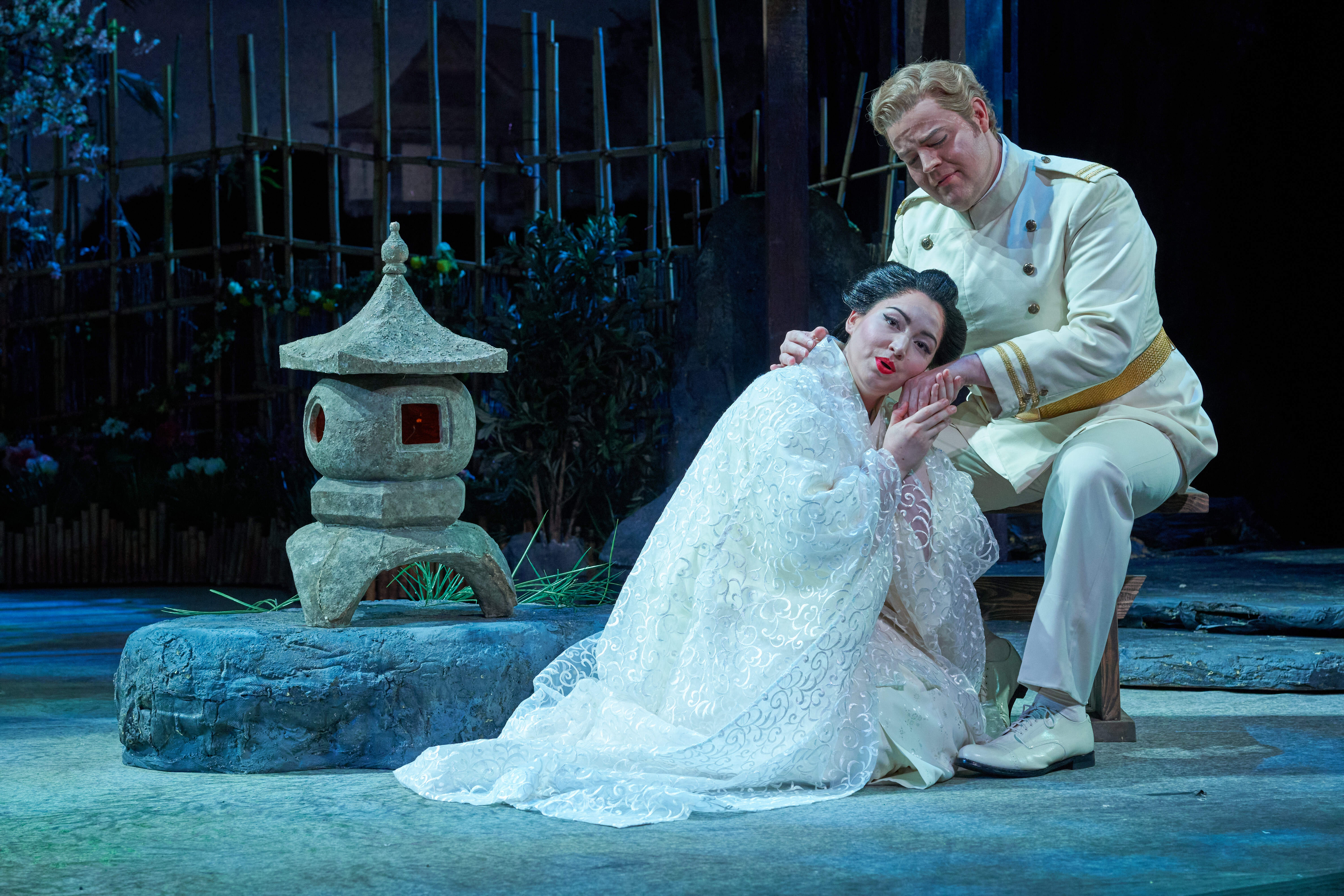Why Madama Butterfly Still Moves Us
This season, Sarasota Opera welcomes a new Madama Butterfly to the stage: Raquel González. González, who grew up in Kansas, trained at Juilliard, and is currently based in Champaign, Illinois, and will be appearing in Sarasota for the first time. She’s not new to the role of Cio-Cio- San, however, having sung it as a young artist at Washington National Opera, and later with Central City Opera. Reviewers have noted the richness and luster of her tone, and the “passion and joy” of her interpretations.
Sarasota Opera spoke recently with her about the challenges and powerful effect of Puccini’s opera.
How does it feel to revisit this very full, very challenging role?
Vocally, it's a dream to come back to. I'm a better singer now than I was the last time I did it. It’s interesting that as you get older and further away from this 15-year-old girl, you learn more about her and your interpretation becomes richer, and it gets easier to add layers to the character. But there are a lot of challenges to singing Butterfly, especially as a Latina. The role and the opera are very loaded and I think we have to acknowledge the flaws in the characterization of Butterfly and the other Japanese characters in the opera. Being aware of the social context in which we're doing this is a new challenge. There's so much more awareness and sensitivity around the way we approach the opera.
How do you see the character of Cio-Cio-San, this young Japanese woman, only 15, who marries an American soldier, not realizing that he is not taking his vows as seriously as she is?
I think at the root of it she's a human character. And I think that despite the fact that the story doesn’t seem very modern right now, she’s still a multi-layered and human woman with human emotions. I think it's still easy to tap into her as a heartbroken young woman, and to track how she comes into womanhood through the events in the opera. So I think that if, in my portrayal of Cio-Cio-San, I can keep in mind her humanity, and the elements that transcend cultures, hopefully it is an interpretation that helps to prove the legitimacy of maintaining Butterfly in the repertoire.
What are the challenges of the role, vocally and dramatically?
The vocal challenges of each act are distinct and specific to her story. You start out as a fifteen-year-old, naïve, hopeful, blindly optimistic in the first act. The music and the vocal lines convey that, and you have to maintain that throughout the first act and then allow the change in the music and the character in Act II to inform your portrayal. While remembering at the same time that even if she has lived a lot of life in those three years between the two acts, she's still only eighteen at that point. You can't sing the whole role with only a thread of your voice; you have to fully support your singing while coloring it with that fifteen- or eighteen-year-old’s perspective. Even after the heartbreak, she is still so hopeful, until she’s not. You can never go on autopilot with a role like Butterfly.
Why do you think Madama Butterfly has continued to be such a popular work in the repertoire?
Well, first of all, it’s the music. There’s no part of the score that doesn’t impact me, whether it’s Butterfly’s entrance or the end of Act One, or any of the popular arias, like “Un bel dì,” or the intermezzo. They’re absolutely heartbreaking. The music is just so effective. It's undeniably great. But also, and this is true about a lot of Puccini's operas, you can tell how much he loved his leading ladies. You can feel, as a singer, and from the audience, that he really loves Cio-Cio-San and that he's writing her story because he cares about her and what happened to her. I don't think this is an opera that can ever go away or be forgotten.
Performances of Madama Butterfly now through March 24.
Tickets: (941) 328-1300 or SarasotaOpera.org







